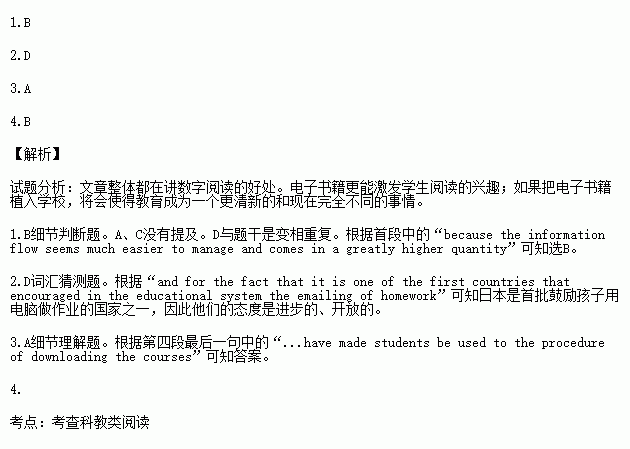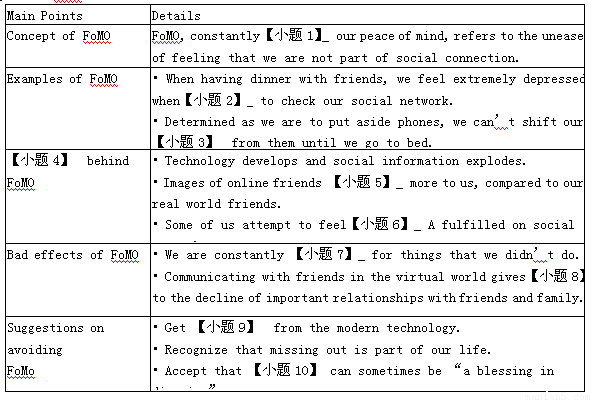题目内容
Ereading and ebooks are slowly conquering the world.Compared to traditional paper books,ebooks in some schools and universities attract more interest because the information flow seems much easier to manage and comes in a greatly higher quantity.
Japan is known for the reformminded attitude towards the gadget(精巧装置) world and for the fact that it is one of the first countries that encouraged in the educational system the emailing of homework.
The digital textbook looks like the logical step in the world of learning.It is natural but it is also completely untraditional.
The plan of the largest publishing companies to get in line with the trend is to save a large quantity of paper and make the kids become interested in learning using a cool gadget.Many USA universities and colleges have made students be used to the procedure of downloading the courses and of course the procedure involves interactive software and also the chance of using the computer.
The traditional education system is still unwilling when it comes to giving up books.The standard approach of information taught out of a book and Shakespeare read out of an old school novel makes studying English as traditional as it can be.
In a world where kids would rather see the movie than read a book,the digital age has brought along a completely different flavor to reading.Bringing that flavor in school will make teaching a greener and also a completely different matter.
1.Why are ebooks so popular in the world?
A.It's cheap to buy.
B.It's effective to use.
C.It's convenient to bring.
D.It's the latest fashion.
2.Which of the following words can best take the place of the word “reformminded” in the second paragraph?
A.Oldfashioned. B.Aggressive.
C.Rejecting. D.Progressive.
3.In America,the students are encouraged to________.
A.apply the procedure of downloading the courses
B.communicate with their teachers using computer
C.research some interactive software for their studies
D.do their homework in computer instead of in paper
4.What's the author's attitude to the digital textbooks?
A.Being against. B.Being for.
C.Not mentioned. D.Being neutral.
 一本好题口算题卡系列答案
一本好题口算题卡系列答案


